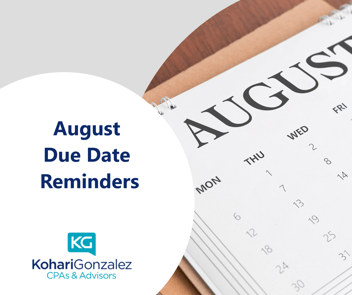It's the last full week of tax season, and our Charlotte office is bustling!
But, yes, I am still pausing to write to you, my buddy. There's a lot of business to communicate today, especially with the deadline of Tuesday, April 17th, looming.
And, don't worry if you've turned in all of your papers and are waiting for us to finish, be assured that my crew is hard at work even as I put this together.
This is always our busiest week of the year (so please bear with us), but it's also the week when we get a lot of requests about extensions from Charlotte taxpayers.
But first, here are a couple more things that happen on July 17th...
1) The first quarter's estimated taxes are due.
2) Do you want to open or contribute to an Individual Retirement Account (IRA) or a Roth Individual Retirement Account (Roth IRA) in 2017? I need to finish that by Tuesday, the 17th.
3) Today is the last day to contribute the maximum amount to your 2017 HSA (Health Savings Account).
4) Make a claim for any refund money from a 2014 return that was not filed. (There's over $1 billion in unclaimed refund money for that year, but it's only available if you didn't file a return.)
5) Tax deadlines in most states are also on the 17th. (There are several exceptions: DE 4/30; HI 4/20; IA 5/1; LA 5/15; VA 5/1; and any state that does not have an income tax.)
(Oh, and if you've already completed your procedure with us, please let us know how it went.) It is really appreciated. We're also listed on Yelp and Google Maps.)
Now, let's get back to those tax extensions.
Breakdown of Sara F Gonzalez's Tax Extension
“Here is a test to find whether your mission on earth is finished: If you’re alive, it isn’t.” -Richard Bach
As you may be aware, the deadline to file a federal tax return is this coming Tuesday, April 17, 2018. If you need more time to finish your documentation, you must file (or have us file) this form with the IRS by the end of the day on the 17th: http://www.irs.gov/pub/irs-pdf/f4868.pdf. This will offer you an automatic six-month extension to file (until October 15, 2018 – not the 17th of October).
Here's the lowdown:
Unfortunately, a "Extension of Time to File" is not the same as a "Extension of Time to Pay." The Extension simply provides you with an extra six months to gather your paperwork and complete your tax return. However, if you owe more than you estimated, you'll be charged penalties and interest on the difference – so PLEASE don't wait the entire six months to do this!
As a result, you'll need to estimate how much you think you owe the IRS when filing your "Extension of Time to File." Numbers should not be conjured up out of thin air (or other various body parts). You'll still have to go through your receipts and tax paperwork and organise them "somewhat."
You may then estimate your income and spending, as well as what you owe Uncle Sam, from here. Remember that this is only an ESTIMATE. You'll also have to pay whatever you think you owe when we file for the tax extension.
We can simply assist you in preparing this estimate.
You can complete everything online through our office, mail the paperwork in with an estimated payment (must be postmarked by the 17th), or phone a specialist supplier and pay by credit card. We can give you with the necessary phone number.
If you are unable to pay your taxes due due to a variety of circumstances:
1) Right now, pay as much as you possibly can.
2) You can request (and frequently receive) a 120-day extension to pay: https://www.irs.gov/taxtopics/tc202.html. It will necessitate a phone call to the IRS.
3) Delay due to "financial hardship": if paying your tax obligation would have a demonstrable impact on your capacity to pay your other bills. Interest and penalties will continue to accrue, but it is preferable to register with the IRS rather than ignore the debt.
4) Installment payment plan: If you owe less than $50,000 in taxes, you should be able to acquire a 72-month instalment payment plan simply by asking.
If this is something you're thinking about, let's chat about it so we can come up with the ideal solution.
You can, however, apply for this online at https://www.irs.gov/Individuals/Online-Payment-Agreement-Application.
5) Bargain: This is not something you should attempt on your alone. We can assist, but the number of “Offers in Compromise” accepted each year is rather small, so understanding how the system works is essential.
6) Using existing credit (credit card, HELOC, private loans): some tax consultants would rapidly advise you to do this, but I would not encourage it, especially because the IRS interest rates are usually better than what you can get here.
However, if you've exhausted all of the preceding alternatives, I recommend that you try this instead:
7) Get rid of anything you don't need. In any case, it's always a good idea.
Warmly,
Sara F Gonzalez(704) 599-3355
Kohari & Gonzalez PLLC



